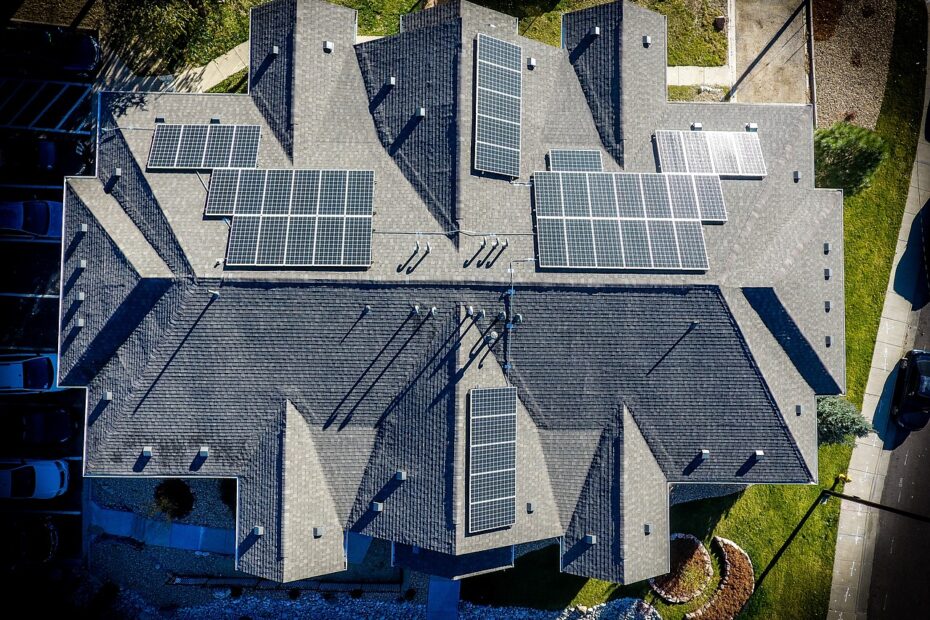The solar energy industry is rapidly changing. As a result, there are several common misconceptions from the past about solar that may affect how homeowners perceive the solar installation process impacting their energy needs. Let’s consider some of these solar myths while exploring what is true about them.
Myth #1: Solar Panels Are Too Expensive
The cost of installing solar panels has fallen dramatically in the last couple of decades, making it affordable to many homeowners. Although it varies by location, most residential solar energy systems have a payback of 10 – 15 years from electricity bill savings. Yet, the life of a solar energy system is typically between 25 – 30 years. This equates to having a system that owners can use for many years with almost “free” electricity.
In states with higher electricity rates, solar energy systems pay for themselves more quickly through savings than in other states. Conversely, in states with lower electricity rates, savings are generally smaller. The savings benefit of installing in Pennsylvania could be higher due to the state’s electricity rates. According to the Independent Fiscal Office’s (IFO) Pennsylvania Electricity Update report, the residential price increased by 30.3% during the five years between 2018 and 2023, the most among regional states. The entire Pennsylvania price increase occurred in 2022 and 2023, as the average residential price in 2021 was 13.8 cents, 0.7% lower than 2018. See one of their tables below:
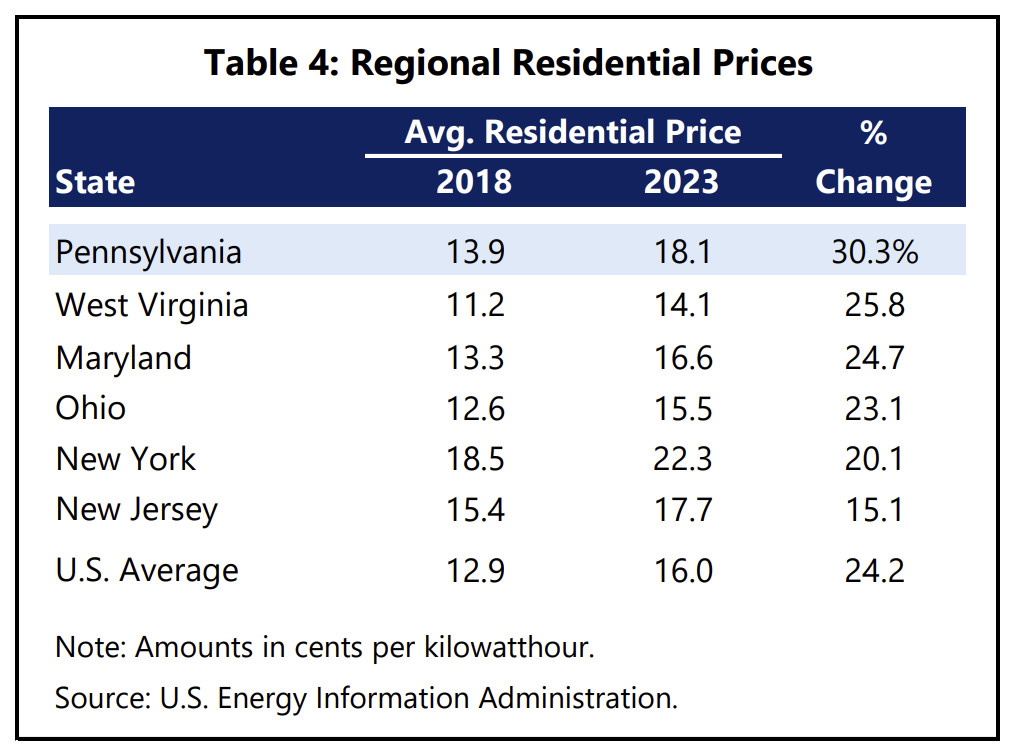
There is currently a 30% tax credit in the United States for solar PV systems. A tax credit is a dollar-for-dollar reduction in taxes owed to the federal government. Therefore, a $15,000 solar system could qualify for a tax credit of up to $4,500. Homeowners should speak with a tax specialist to determine how to take advantage of this and other local and regional incentives. If homeowners can finance a solar system, the cost savings on the electric bill can help offset the loan payments in many instances. Some financing options specifically cater to financing solar energy systems, and many homeowners can use home equity loans. See our blog post about ‘Financial Options and Incentives’ for more details.
Myth 2: Solar Panels Don’t Generate Much Power In Cold Climates
There’s a seasonality to solar energy production in the United States because of our latitude where winter days are shorter than summer days. This means that typically solar energy production is higher in July and August than in December and January. However, while output is somewhat lower in winter, solar energy systems still produce significant power. Solar panel efficiency is actually higher when cooler because PV systems generate electricity from sunlight, not heat. In fact, when panels get too hot, they produce less power because they become less efficient.
Solar panels also generate more energy when they are at a steeper angle in the winter because the sun is lower in the sky. Most solar panels are mounted flush on house or garage roofs, so the exact angle depends on the roof’s pitch. There is a ‘sweet spot’ for solar panels in the continental U.S., which is facing roughly south, tilted between 15 and 40 degrees, according to the Department of Energy. That keeps the panels in the sun longer than other setups—which means more electricity per panel per year, and bigger savings on a home’s utility bills.

Myth 3: Solar Panels Lower a Home’s Resale Value
Due to increases in solar power in the United States, many prospective homebuyers view solar as an upgrade to a property. While they may not realize it initially, solar panels actually increase a home’s resale value. A 2019 study from Zillow found that homes with solar energy systems sold for nearly $10,000 more than traditionally powered homes. This means that installing solar panels can yield not only long-term energy savings but also financial benefits when the time comes for sale. Some of the reasons why:
- Solar panels demonstrate investment in the home’s energy efficiency.
- Homes with solar power have lower energy bills, making them more affordable.
- With incentives like tax credits, solar panels can pay for themselves over time.
- As solar tech advances and panels become even more efficient, early adopters stand to benefit when reselling.
Myth 4: Solar Panels Aren’t Eco-Friendly in the Long Run
Some people think solar panels negatively impact the environment once their life span ends. They assume that used panels accumulate in landfills, creating an excess of toxic technical waste. However, it’s important to note that a single solar panel can generate clean energy for up to 25 years before they eventually stop producing energy.
Agencies like the U.S. Environmental Protection Agency (EPA) are implementing programs to recycle PV panels to ensure they don’t wind up in landfills. The EPA’s website talks about recycling and recovering valuable raw materials for producing new panels The International Renewable Energy Agency speculates that recycled solar panels contain the resources needed to develop 60 million new panels.
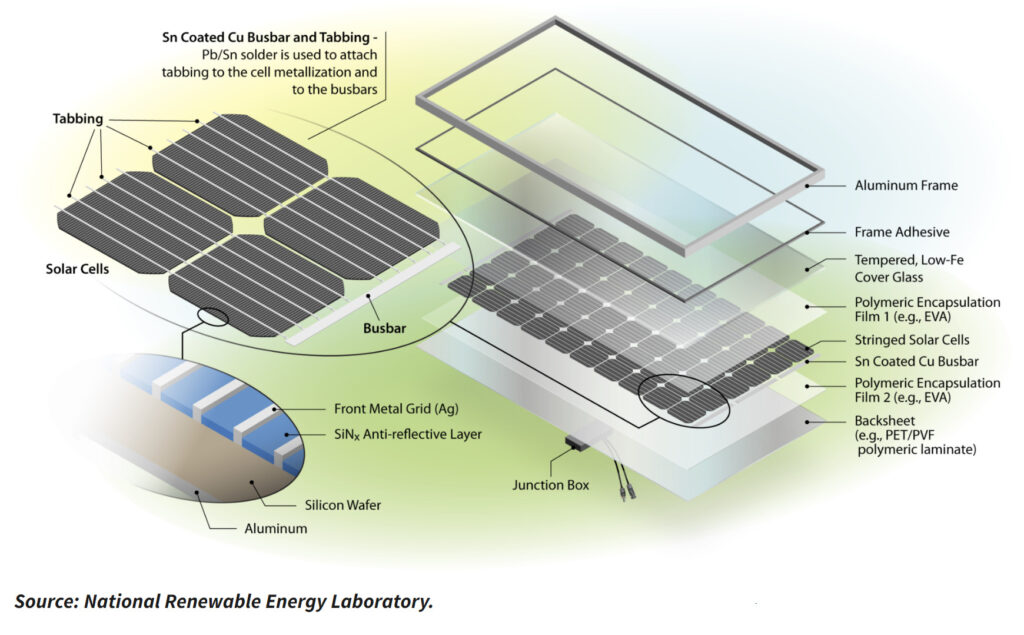
While earlier solar panel technology relied on some components that were not renewable, today’s panels aim for sustainability all the way through the entire cycle from production to disposal. Many cells now use abundant elements like silicon, and new polymers and thin films enable fully recyclable parts. Combine that with national recycling initiatives, and solar looks like an eco-friendly energy solution into the future.
Myth 5: Solar Panels Damage Your Roof
Solar panels don’t damage your roof if they are installed correctly. In other words, you can avoid worrying about damaging your home by hiring a qualified solar installation professional to do a proper job. See our previous blog post about ‘Finding The Best Solar Installer’.
Solar panels fasten to your roof with aluminum rails and mounts. The mounts have metal feet that screw into the roofing material with lag bolts. The most important part of this process is sealing around the screws to prevent moisture from leaking through the roof. The technicians should also install a water-tight barrier to protect your roof from water damage. A qualified solar installer knows how to distribute mechanical loads evenly and waterproof your roof, which can prevent leaks or premature roof wear. However, if your roof is old, you should either complete the needed repairs first or consider replacing your roof at the same time as installation. If you use a professional to install your system on an intact roof, you as a homeowner shouldn’t have to worry about panel damage.
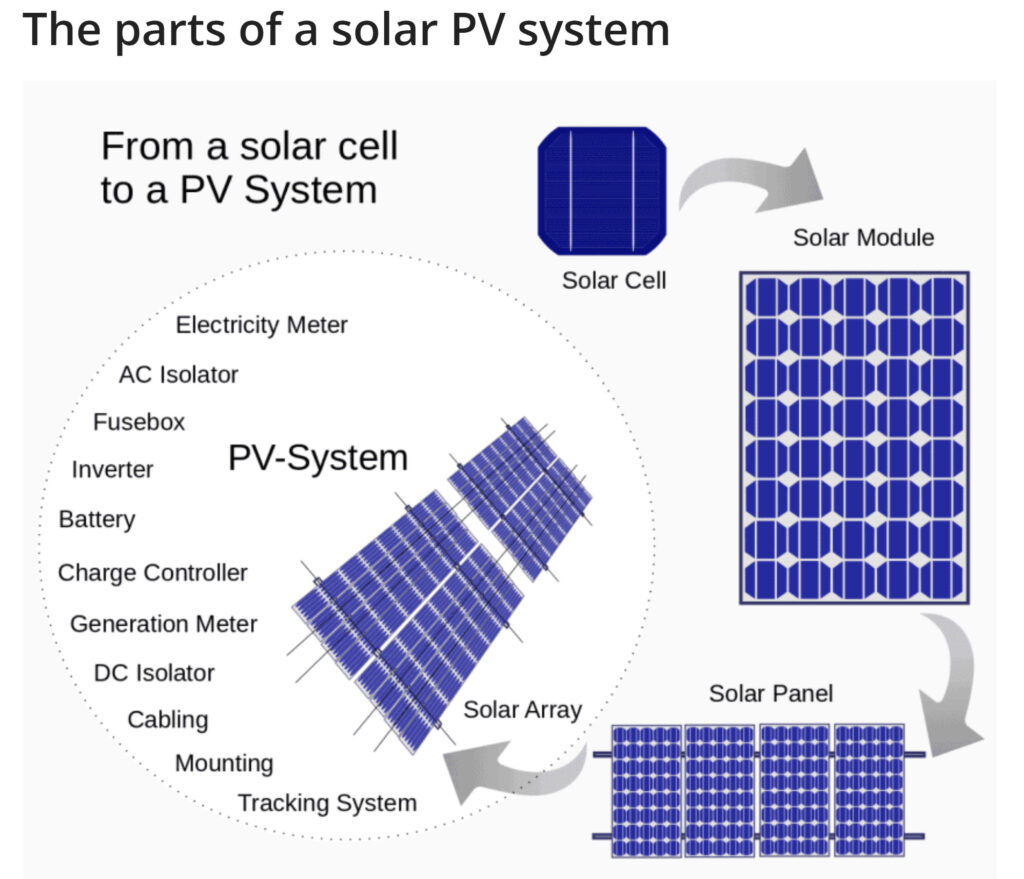
Myth 6: Having Solar Panels Means You Don’t Have Electric Bills
Many people interested in solar think they’ll be free of electric bills once their solar panels start supplying energy. However, solar panels don’t usually produce enough power to meet all of a home’s typical energy needs.
Most solar-powered homes still connect to the main power grid and use energy from utility companies. According to the U.S. Department of Energy, solar panels only provide a portion of most homes’ energy needs, while the balance still comes from the grid. For this reason, solar panels won’t remove your traditional power bills completely but can lower them by decreasing the amount of energy you use from the utility company.
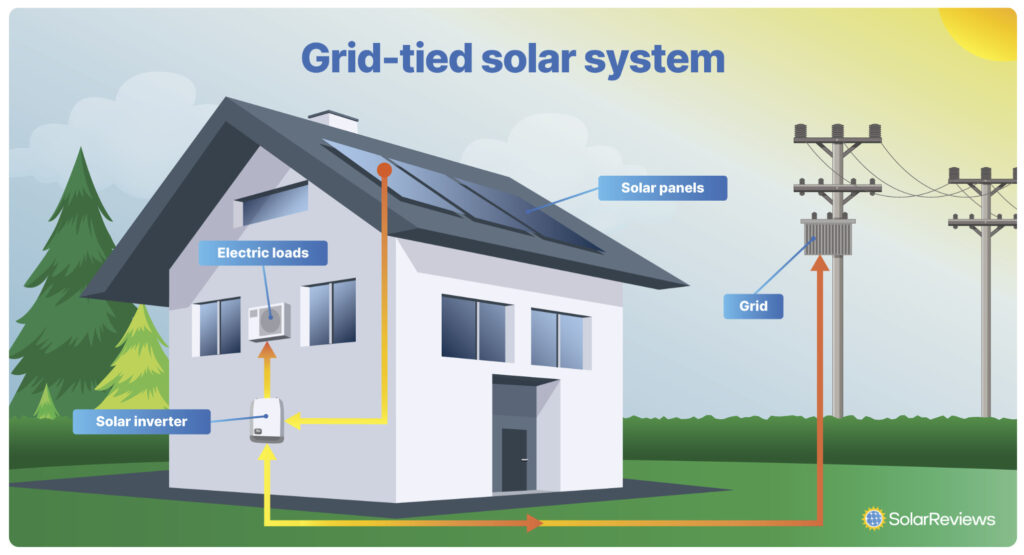
While it’s possible to fully power a home with solar alone, this would require ample roof space for panels, a solar battery storage system for surplus energy, and a significant commitment to additional energy-saving measures to minimize energy consumption. For most homes, connecting to the grid makes the most sense, which brings big savings without demanding complete energy independence. Installing solar panels is more of a ‘long-term play’ as opposed to expecting an overnight elimination of a homeowner’s electric bills.
